 |
|||||||||




 |
|||||||||




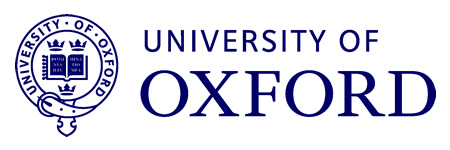
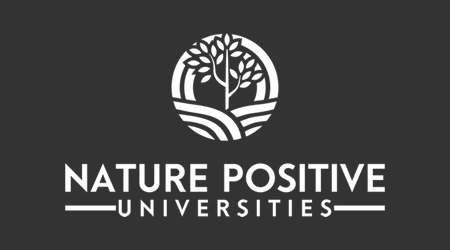
Oxford, UK. January 29, 2023 — At the UN Biodiversity Conference (COP15), the University of Oxford and the UN Environment Programme (UNEP) announced the launch of the Nature Positive Universities Alliance. It is a global network of universities that have officially pledged to advance efforts to halt, prevent and reverse nature loss by addressing their impacts and restoring ecosystems harmed by our activities. This push is part of the UN Decade on Ecosystem Restoration, a movement to avert climate catastrophe and mass extinction.
The Nature Positive Universities Alliance brings higher education institutions together to use their unique power and influence as drivers of positive change. Universities already carry out environmental and conservation research to help inform government and company activities. However, by publicly tackling their supply chains and operational impacts on nature, universities can help guide the broader community on a path to address the triple planetary crisis of climate change, biodiversity loss, and pollution.
“The University of Oxford has an environmental sustainability strategy with dual targets of net zero carbon and a net gain in biodiversity by 2035. These targets for large institutions are challenging to achieve. But through collaboration and idea-sharing with other universities via the Nature Positive Universities Alliance, we can collectively progress towards achieving net biodiversity gain,” said Harriet Waters, Head of Environmental Sustainability at the University of Oxford.
The initiative, a part of the UN’s Decade on Ecosystem Restoration, was initially launched by 117 universities from 48 countries, which made individual pledges to address their impacts on nature. University pledges include four key elements:
The initiative builds on the University of Oxford’s experience setting an ambitious target for net biodiversity gain by 2035 alongside net zero commitments.
E.J. Milner-Gulland, Tasso Leventis Professor of Biodiversity at the Department of Biology, University of Oxford, and co-founder of the Nature Positive Universities Alliance, said: “As universities, we occupy a unique position in educating future leaders, researching solutions to environmental challenges, and influencing our communities and governments. By addressing our own institutions’ environmental impacts, we can be powerful thought leaders while directly contributing to restoring nature.”
All the founding universities announced that they have pledged to assess their impacts to determine the most impactful initiatives to introduce and to report on their progress. Examples of initiatives so far have included:
Establishing nature-friendly infrastructure such as ecological corridors at the University of Buenos Aires, Argentina, and the University of Campinas, Brazil, and new green walls at the UK’s University of Lincoln to support pollinators.
Contributing to afforestation and restoration by developing institutional forests at Government Dungar College in Bikaner, India, and the University of Aveiro, Portugal.
Completing university-wide surveys and audits of biodiversity at the University of Turku, Finland, and increasing biodiversity at the all University of Melbourne campuses.
Improving supply chain through sustainable catering, such as reducing food waste and more sustainable menus at the University of Oxford and producing high-quality farmed produce on its land to supply university canteens at Ahmadu Bello University, Nigeria.
Commitments to improve operational footprints, such as achieving Green Lab accreditation across the all University of Exeter laboratories.
Establishment of regional hubs of universities collaborating towards a nature-positive goal in Algeria, Nigeria, India, and Canada.
People from 408 different universities are:
The network also includes a Student Ambassador Programme, which totals over 100 students from across 35 countries who are taking action toward nature-positive awareness and approaches on their campuses. In addition, they are encouraging their universities to make an institutional pledge through advocacy and organization of nature-positive activities such as volunteering for nature restoration, establishing sapling nurseries, and using their studies to advance their institutions’ sustainability further.
Sam Barratt, Chief of Youth, Education, and Advocacy at the UN Environment Programme, said: “Universities live at the heart of cities, at the crossroads of students’ futures and provide ground-breaking research that educates and informs society. We are delighted to see Universities will be joining hands to reset our relationship with nature so that, through this Alliance, we create new actions and possibilities. The virtue of higher education has come from a reappraisal of the present to steer the world to a new future. So we look forward to seeing how the Nature Positive Universities Alliance does just that for this agenda.”
The Nature Positive Universities Alliance calls on other universities worldwide to join its collaborative network and make institutional pledges.
Universities that have recently joined include, among others, the University of Helsinki, Finland; University College, Cork, Ireland; Durham University, McGill University, Canada; Bundelkhand University, Jhansi, India; University of California UCLA, USA; University of Bremen, Germany; Universidad Autonoma de Madrid; Universite de Geneve; UNSW Sydney, Australia; Carl von Ossietsky Universitat Oldenburg; The University of Faisalabad, Pakistan; University of Punjab, Lahore, Pakistan; Independent University, Bangladesh; UC Berkeley, USA; University of Melbourne, Australia; Punjabi University, Patiala, India; Panjab University, Chandigarh, India; OP Jindal Global University, Sonepat, India; and Indira Gandhi National Open University, Delhi, India, for example.
Source: University of Oxford
|GlobalGiants.Com|
— The editor is an “Oxford University Associate Alumnus.”
Nature Positive Universities
The Nature Positive Universities Alliance is a global network of universities prioritizing nature restoration. Launched by the United Nations Environment Programme (UNEP) and the University of Oxford in partnership with the UN Decade on Ecosystem Restoration.
Edited & Posted by the Editor | 9:16 AM | View the original post
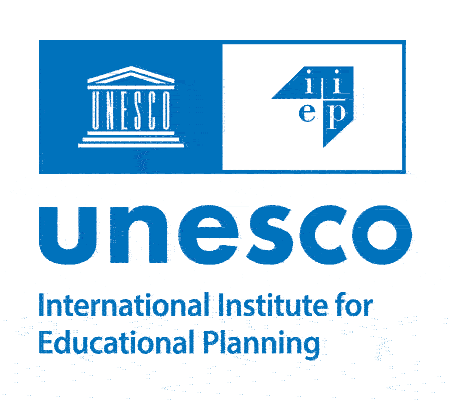
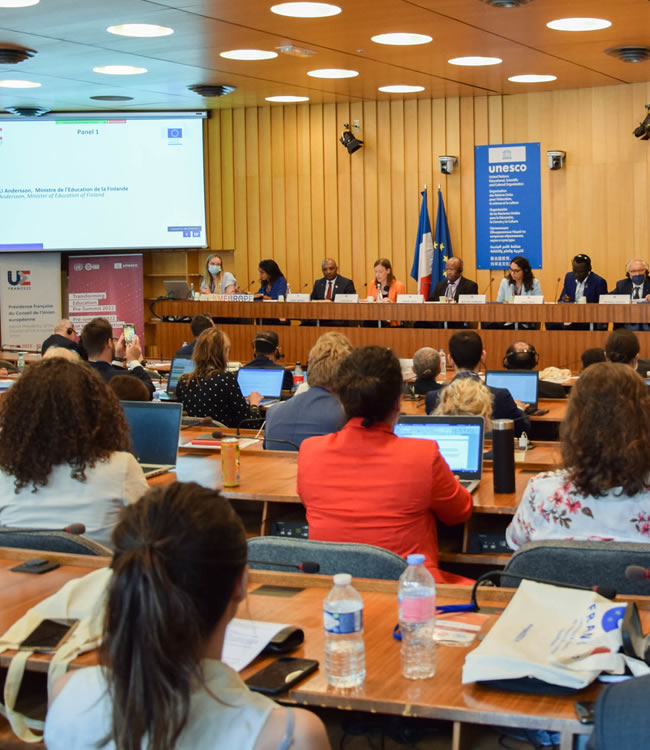
Photo: UNESCO Headquarters, Paris. Conference on Transforming Education through Regional Collaboration. Photographer: Lily CHAVANCE. Image provided by & copyright © UNESCO/Lily CHAVANCE.
Paris, January 12, 2023 — The Governing Board of the UNESCO International Institute for Educational Planning (IIEP-UNESCO) met in Paris, France, from 13 to December 14, 2022, to take stock of recent achievements and to chart a path forward for the Institute as the 60th anniversary of IIEP draws near.
Members of the Board (currently chaired by José Weinstein and representing all regions of the world) stressed that equitable access to education and equal opportunities for learning and skills development could only be achieved through solid planning and management of education systems. And this lies at the heart of IIEP’s mandate, established in 1963.
Six decades on, this remains more relevant than ever as countries worldwide strive to recover learning losses arising from the pandemic and transform education and foundational learning in a rapidly changing world.
To accompany UNESCO Member States on this journey, the Board welcomed IIEP’s recent reflections and adjustments to its core offer to countries. It includes a new global training strategy, which aims to sustainably meet the capacity needs of educational planners and systems across the globe.
Additionally, IIEP will launch a new Global Learning Academy in 2023 with a refreshed course catalog, a hybrid blended approach offering greater flexibility for professionals, and enhanced harmonization across the Buenos Aires, Dakar, and Paris offices. It will come amid a year-long celebration of IIEP’s 60th anniversary, which will also involve deep reflections on the future of planning and its place in a world facing evolving global threats and challenges.
Adding to the momentum, the Board welcomed IIEP’s new Resource Mobilization Plan as the Institute seeks to maintain and grow its funding base. In addition, a donor mapping is underway to identify opportunities that align with country demand and IIEP’s critical priorities on data, governance and finance, management for learning, equity and resilience, and skills and flexible learning.
The 12-member Board also congratulated IIEP for its substantial achievements in 2022 and its contributions to global solution-building, echoing the spirit of the Transforming Education Summit this past year.
In 2022, several planners and other education professionals received training from IIEP, and 19 countries benefited from IIEP technical assistance. Hence, it increasingly emphasizes the importance of implementing and monitoring plans and policies for tangible system transformation.
IIEP lent its support beyond the traditional education sector analysis and plan development to include a more comprehensive and diverse offer to countries.
Today, IIEP emphasizes applying a gender and crisis lens throughout the planning cycle to protect the right to education for all and to build system resilience.
Finally, in 2022, the Institute launched its new Knowledge Management and Mobilization team. It also generated and shared new evidence and knowledge on various topics, including flexible learning pathways, open government initiatives, ministry of education leadership, digital education policies, and gender dynamics.
Source: UNESCO International Institute for Educational Planning (IIEP-UNESCO)
|GlobalGiants.Com|
— The Editor is an IIEP-UNESCO certified “Independent Appraiser” of Government Education Plans.
Edited & Posted by the Editor | 12:57 PM | View the original post
The World Economic Forum Annual Meeting 2023 will convene under the theme, Cooperation in a Fragmented World
It calls on world leaders to address immediate economic, energy, and food crises while laying the groundwork for a more sustainable, resilient world
Meeting will convene more than 2,700 leaders from 130 countries, including 52 heads of state/government

Photo: World Economic Forum Annual Meeting 2023, Davos, Switzerland. Photographer: Mattias Nutt. Image provided by & Copyright © World Economic Forum/Mattias Nutt. [File Photo]
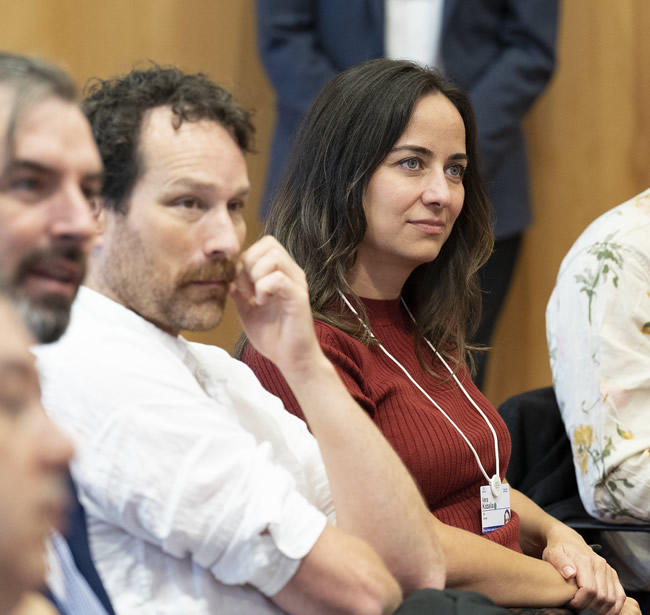
Photo: Participants at the World Economic Forum Young Global Leaders Alumni Gathering, Geneva, Switzerland. October 20, 2022. Photographer: Pascal Bitz. Image provided by & Copyright © World Economic Forum/Pascal Bitz. [File Photo]
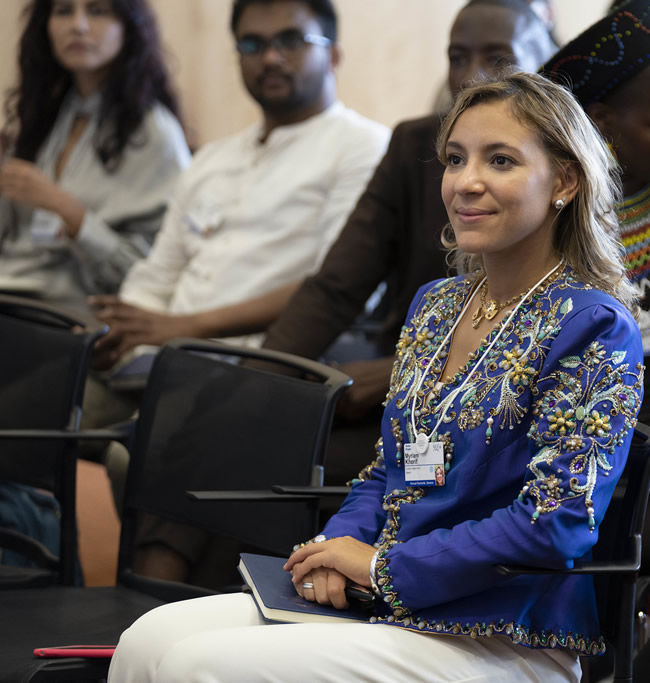
Photo: World Economic Forum Global Shapers Annual Summit, Geneva, Switzerland. September 3, 2022. Photographer: Pascal Bitz. Image provided by & Copyright © World Economic Forum/Pascal Bitz. [File Photo]
Geneva, Switzerland, January 10, 2023 - The World Economic Forum Annual Meeting 2023, taking place 16-20 January in Davos-Klosters, Switzerland, comes as multiple crises deepen divisions and fragment the geopolitical landscape. Leaders must address people’s immediate, critical needs while laying the groundwork for a more sustainable, resilient world by the decade’s end.
“We see the manifold political, economic, and social forces creating increased fragmentation on a global and national level. To address the root causes of this erosion of trust, we need to reinforce cooperation between the government and business sectors, creating the conditions for a strong and durable recovery. But, at the same time, there must be the recognition that economic development needs to be made more resilient, more sustainable, and nobody should be left behind,” said Klaus Schwab, Founder and Executive Chairman of World Economic Forum.
The program of the 53rd Annual Meeting focuses on solutions and public-private cooperation to tackle the world’s most pressing challenges. It encourages world leaders to work together on the interconnected issues of energy, climate, and nature; investment, trade, and infrastructure; frontier technologies and industry resilience; jobs, skills, social mobility, and health; and geopolitical cooperation in a multipolar world. Particular emphasis is on gender and geographical diversity across all sessions.
Switzerland is the host country for the Annual Meeting. More than 2,700 leaders will participate this year, with a strong representation from all key regions of the world. Top political leaders taking part include:
As well as:
Heads of international organizations taking part include:
This year will bring about the highest-ever business participation at Davos, with over 1,500 leaders registered across 700 organizations, including over 600 of the world’s top CEOs from the World Economic Forum’s Members and Partners, with top-level representation from sectors such as financial services, energy, materials and infrastructure, information and communication technologies. They come as governments increasingly look to businesses to implement big ideas quickly and inclusively. There will also be a strong representation of Global Innovators who are transforming industries, with more than 90 mission-driven leaders from the Forum’s Technology Pioneers and recently launched Unicorn communities.
Leaders from civil society taking part in the Meeting include:
Among the new initiatives at the Annual Meeting is the Global Collaboration Village. This purpose-driven metaverse fosters more sustainable public-private collaboration and spurs action to deliver impact at scale. In addition, the first-ever metaverse multilateral meeting hosted by the Forum will bring together experts and leaders from finance, food, and retail to drive action on ocean health and seafood waste.
More than 160 of the Forum’s civic-minded young leaders will join as members of our Global Shapers, Young Global Leaders, and Social Entrepreneurs communities this year. WEF will also welcome nine Indigenous leaders bringing the knowledge and expertise of their communities to advance regional and global efforts in ecosystem restoration, inclusive trade, and sustainable development.
More than 125 experts and heads of the world’s leading universities, research institutions, and think tanks will join the Meeting, bringing the latest facts, insights, science, and data into the program and the Forum’s work.
The Arts and Culture program features several sessions and immersive art installations on preserving coral reefs, displaced peoples and the global refugee crisis, gender equality and female empowerment, and global sea-level rise. In addition, it will include the 27th Annual Crystal Awards and Cultural Leaders.
This year is the 20th anniversary of the Open Forum, which welcomes diverse people worldwide to listen and share experiences with experts and leaders on pressing issues. The theme is Our Environment: Lessons, Challenges, and Opportunities.
The 53rd Annual Meeting will also be climate-neutral for the sixth consecutive year. New initiatives to boost resource efficiency and reduce emissions will build on the Forum’s 2018 ISO 20121 certification for sustainable event management.
Source: World Economic Forum
|GlobalGiants.Com|
Edited & Posted by the Editor | 7:17 AM | View the original post
— The Tata Transformation Prize will recognize Indian scientists for research to solve societal needs and promote economic competitiveness.
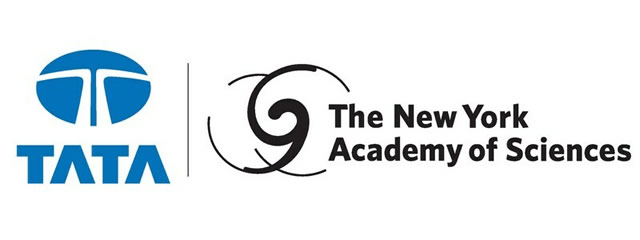
MUMBAI, India, January 4, 2023 — Tata Sons and the New York Academy of Sciences announced the Tata Transformation Prize to recognize and support promising scientists in India who are developing innovative technological solutions to critical societal challenges.
The new prize will be awarded yearly to three scientists for innovations in food security, sustainability, and healthcare. Each winner will receive INR 2 crores and will be honored at a ceremony in India in December.
“This prize will accelerate breakthrough innovations by the Indian scientific community,” said Natarajan Chandrasekaran, Chairman of the Board of Tata Sons. “We hope this prize will help bring the transformational work of Indian scientists to light, reward them appropriately, and encourage them to take solutions to market. The Tata Transformation Prize is one small way in which we will promote science and scientists to solve India’s national problems.”
Applicants for the prize must be active researchers with a doctoral degree or equivalent and employed at an eligible university, institute, or other research organization in India. Applicants must propose technologies addressing food security, sustainability, or healthcare challenges with a focus on digital and technological transformation. Prize winners will be scientists whose proposed innovations re-imagine traditional practices and business models, transform technological paradigms, improve public trust, and promote an open and connected world.
“Pathbreaking research takes place in India, resulting in important advances in science around the world,” said Professor Nicholas Dirks, President and CEO of the New York Academy of Sciences. “This prize is focused not only on science but on innovative discoveries that put science to work for the betterment of society, to solving major global challenges in three core areas. We are so pleased to be working with Tata, and Chairman N. Chandrasekaran, to support scientific and technical innovation in India. In addition, it will raise national and international awareness of India’s scientific research and development strengths.”
The Tata Transformation Prize is the latest in a series of prominent awards and scholarship programs the Academy and its partners present each year to accomplished early-career and established scientists worldwide. These initiatives and education and professional development programs for students and young scientists reflect the Academy’s broader commitment to strengthening and diversifying the pipeline for skilled and talented scientists globally.
Founded by Jamsetji Tata in 1868, the Tata Group is a global enterprise headquartered in India, comprising 30 companies across ten verticals. The group operates in more than 100 countries across six continents, with a mission ‘To improve the quality of life of the communities we serve globally, through long-term stakeholder value creation based on Leadership with Trust.’
Each Tata company or enterprise operates independently under the guidance and supervision of its board of directors. There are 29 publicly-listed Tata enterprises with a combined market capitalization of $311 billion (INR 23.6 trillion) as on March 31, 2022. Tata Group Companies include Tata Consultancy Services, Tata Motors, Tata Steel, Tata Chemicals, Tata Consumer Products, Titan, Tata Capital, Tata Power, Indian Hotels, Tata Communications, Tata Electronics, Air India, and Tata Digital.
The New York Academy of Sciences is an independent, not-for-profit organization that, since 1817, has been committed to advancing science for the benefit of society. With over 20,000 Members in 100 countries, the Academy promotes scientific and technical knowledge, addresses global challenges with science-based solutions, and sponsors various educational initiatives.
Source: New York Academy of Sciences
|GlobalGiants.Com|
Announcing the Tata Transformation Prize
Edited & Posted by the Editor | 11:17 AM | View the original post
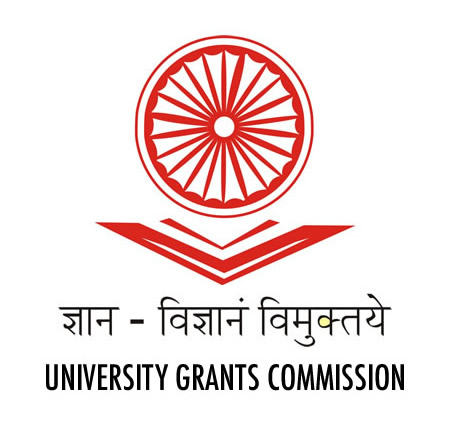
— New Delhi, December 27, 2022 — The University Grants Commission (UGC), India, has invited all State & Private University Vice-Chancellors to join its program on implementing the Academic Bank of Credits.
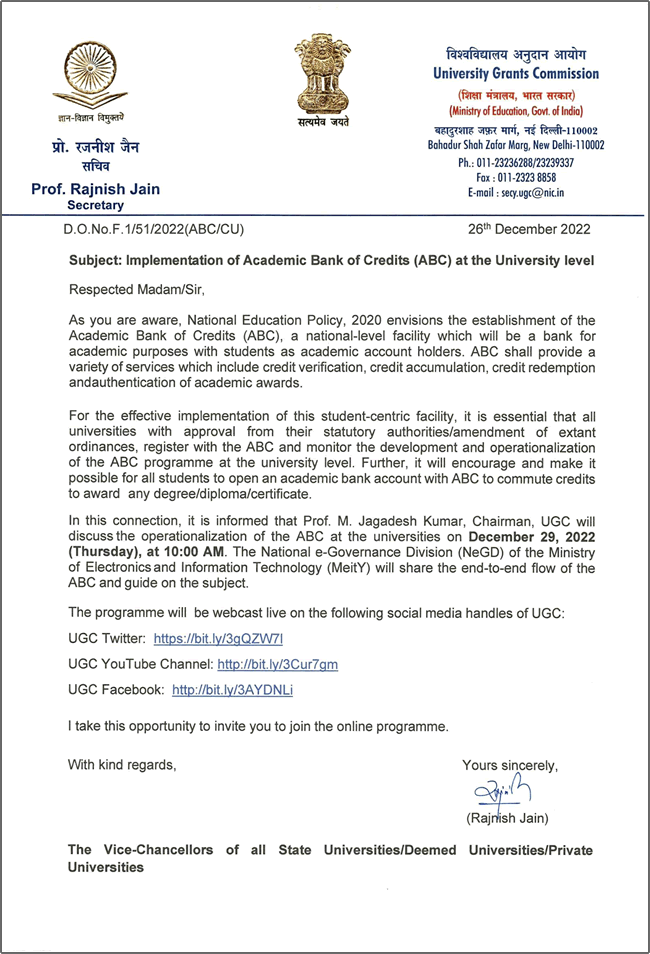
Source: University Grants Commission (UGC)
|GlobalGiants.Com|

(Already submitted to the UGC on March 15, 2022)
• Efficient Mobility of Credits between Institutions
The proposed Transformation of Higher Education Institutions (HEIs) into Multidisciplinary Institutions by the UGC hinges on one critical common factor: Efficient Mobility of Credits between Institutions. Therefore, it is essential to pay special attention to the operation and utilization of the Academic Bank of Credits (ABC) platform and the Digilocker Framework under which it works. Thus, an HEI may not be authorized to transform into a Multidisciplinary Institution unless —
(a) It has joined the Academic Bank of Credits (ABC).(b) Its administration has constituted a separate section that looks after its Academic Bank of Credits (ABC) and Digilocker affairs.
© GlobalGiants.Com
— The Editor is a UNESCO—IIEP (International Institute for Educational Planning, Paris) readied “Independent Appraiser” of Government Education Plans.
UGC directs universities to register with Academic Bank of Credits (ABC) programmehttps://t.co/BN0LA1FCpj pic.twitter.com/kdYgyG0o5c
— Mamidala Jagadesh Kumar (@mamidala90) December 28, 2022
Edited & Posted by the Editor | 2:19 AM | View the original post
— National Testing Agency (NTA)), India, has issued its Calendar for Academic Year 2023-24 through a Public Notice.
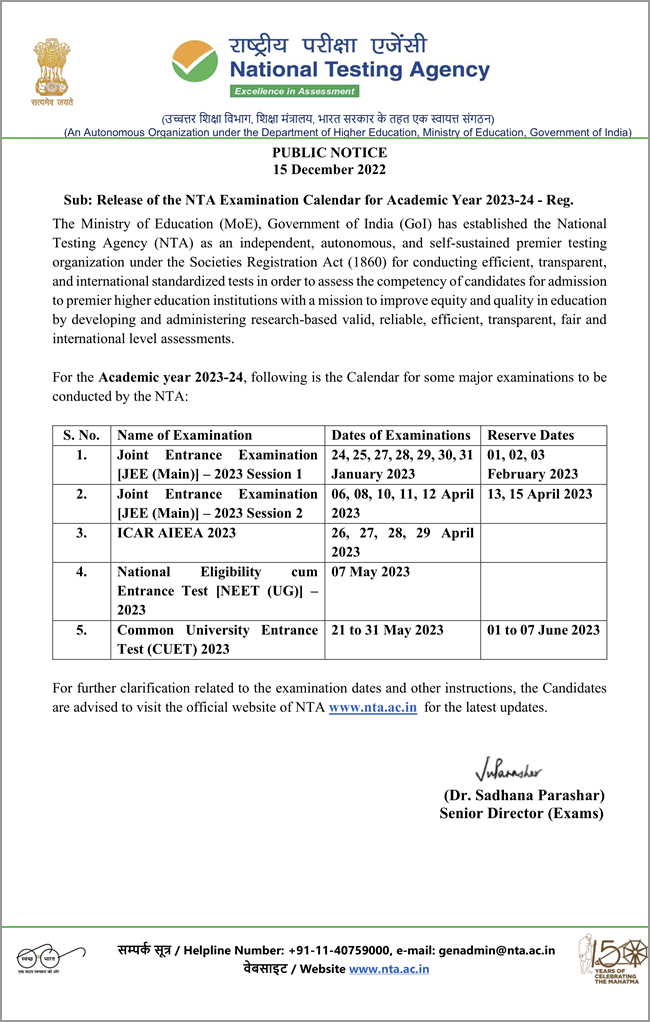
Source: National Testing Agency (NTA)), India
|GlobalGiants.Com|
Edited & Posted by the Editor | 9:25 AM | View the original post
The American Association of University Administrators (AAUA) has announced its Call for Nominations for Awards [USA].
January 15, 2023, is the deadline for receipt of Applications.
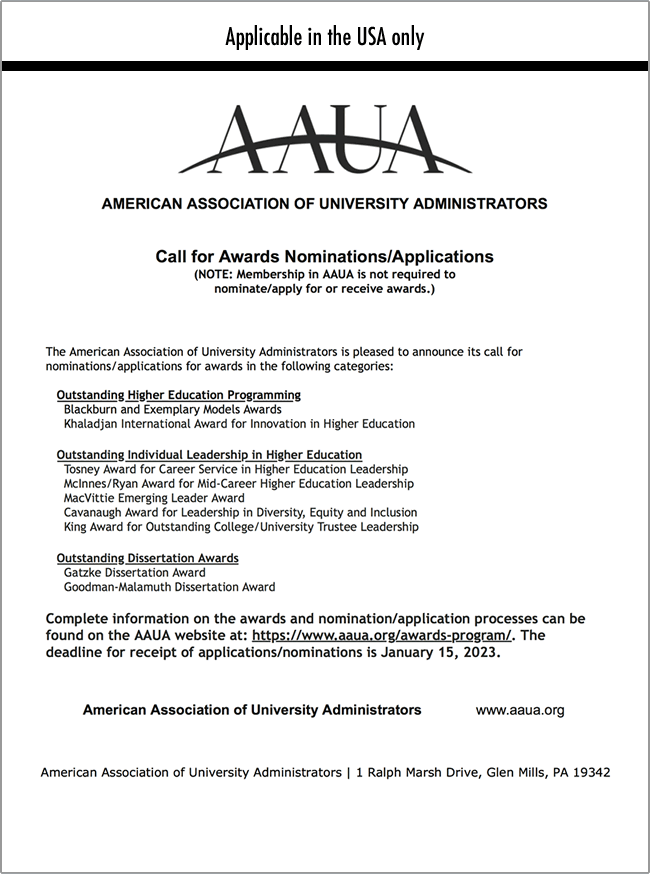
The American Association of University Administrators (AAUA) is a non-profit professional organization for higher education leaders and administrative personnel in the USA. Its mission is to develop and advance superior standards for the profession of higher education administration. Through its policy statements, programs, and services, the Association stresses the responsibility of administrators to demonstrate moral and ethical leadership in exercising all their duties.
Source: AAUA
|GlobalGiants.Com|
— The editor is a member of the AAUA.
Edited & Posted by the Editor | 5:35 AM | View the original post
— The High-Level Steering Committee on Sustainable Development Goal 4 on Education, convened by UNESCO, called on countries to adopt new indicators measuring the implementation of green Education and digital access to learning for all.
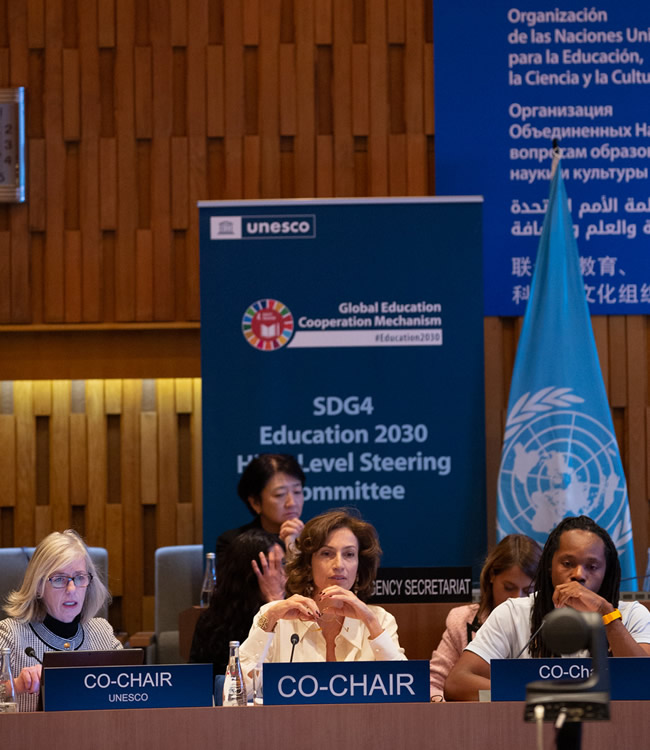
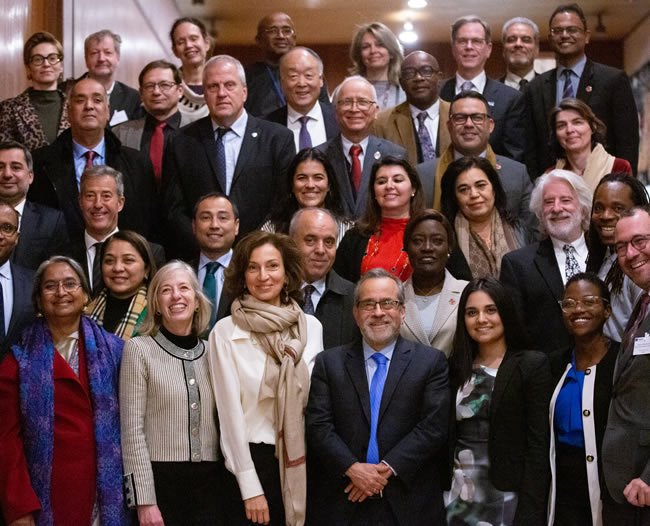
Photos: UNESCO Headquarters Paris. SDG4 High-Level Steering Committee Meeting. December 9, 2022. Images provided by & copyright © UNESCO/Christelle ALIX.
Paris, December 09, 2022 — To advance its priorities, on December 8 & 9, UNESCO convened a meeting of the High-Level Steering Committee on Sustainable Development Goal 4 on Education. The meeting took place at UNESCO Headquarters, under the chairmanship of Audrey Azoulay, UNESCO’s Director General, and Julius Maada Bio, the President of Sierra Leone.
Following the Transforming Education Summit (TES) on September 2022 in New York, the UN Secretary-General mandated the Committee to ensure and monitor the effective follow-up of countries’ commitments at the Summit.
The Committee called on world leaders to endorse the six calls to action at the Summit:
“Ensuring all children and youth are climate-ready, improving schools’ digital connectivity and students’ access to online learning contents are critical goals. We appeal to world leaders to accelerate progress in these areas following the agreements reached by the Transforming Education Summit,” UNESCO Director-General Audrey Azoulay said.
The Sustainable Development Goal benchmarks will measure each country’s progress by 2025 and 2030, representing the transformation countries want to see from the Summit. For example, governments could count how many schools are green-accredited and how much national laws, policies, and standards cover climate education. On digital transformation, countries could measure the extent to which every school and child is connected to digital solutions.
The High-Level Steering Committee (HLSC) comprises principals of United Nations and education partner agencies, civil society and donor representatives, and Ministers of Education from 12 countries.
HLSC follows the Transforming Education Summit (TES) that took place in September 2022 in New York. TES was the largest global education summit in recent decades. It led to national commitments from 133 countries to recover learning losses from the pandemic and transform their education systems to make them more inclusive, relevant, and resilient to future shocks.
Source: UNESCO
|GlobalGiants.Com|
— The editor is a UNESCO—IIEP readied “Independent Appraiser” of Government Education Plans.
Edited & Posted by the Editor | 3:20 PM | View the original post
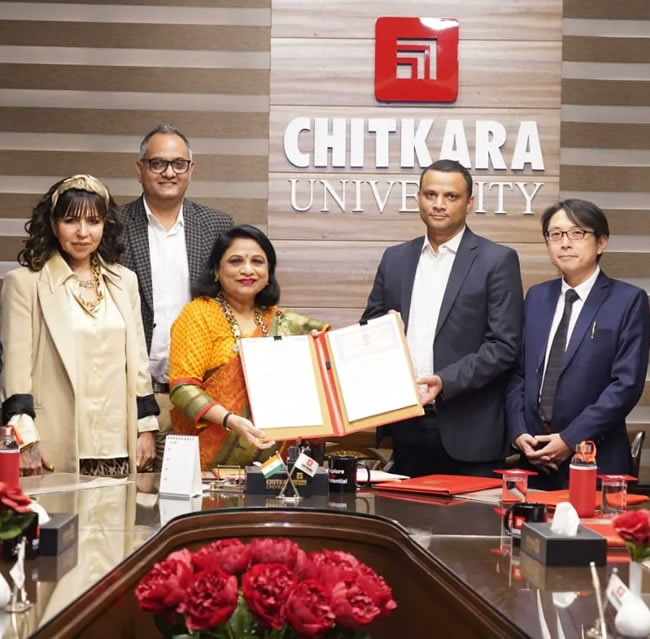
Photo: Dr.Madhu Chitkara, Pro-Chancellor, Chitkara University, and Mr. Deepak Jha, GM & Head, NEC Corporation India, at the MoU signing ceremony.
Chandigarh, India, December 08, 2022 — Chitkara University announced its collaboration with NEC Corporation India, a wholly owned subsidiary of NEC Corporation, for a comprehensive academic program for aspiring students to facilitate them with hands-on training and research facilities in the area of Artificial Intelligence & Machine Learning (Al/ML) and High-Performance Computing (HPC).
NEC Corporation India and Chitkara University signed the Memorandum of Understanding (MoU). The agreement will allow the University to upskill its students, faculty, and academic researchers in AI. It will also enable students to obtain certifications for being job-ready and finding suitable employment opportunities within and outside NEC.
Dr. Madhu Chitkara, Pro-Chancellor, of Chitkara University, said, “The realm of technical education has constantly been evolving and at great speed. This MoU will equip young graduates with analytical capabilities, including using Artificial Intelligence and Machine Learning to help unlock the benefits of digitalization and innovation.”
Deepak Jha, General Manager & Head of Artificial Intelligence Platform, NEC Corporation India, said, “AI/ML and HPC will be the drivers of technological and social change in the coming years. This joint certification program will create industry-ready professionals. We at NEC India strive to build state-of-the-art solutions focused on overcoming complex technological & business challenges. Above all, we believe in sharing our knowledge, skills, and expertise with future generations.”
Over the last two decades, the world has seen a radical transformation in AI research and High-Performance Computing (HPC), transforming from a small, relatively niche domain into an extensive web of pioneering innovations, empowering almost every facet of life. To accelerate India’s vision to enable a technologically empowered nation, NEC India will co-create a state-of-the-art education program to help students achieve outstanding performance across diverse workloads by establishing a dedicated AI/HPC lab on the campus.
As part of this agreement, NEC India will also provide a vector engine system, namely SX-Aurora TSUBASA, to the University. With the establishment of NEC SX-TSUBASA computer system-driven lab, NEC aims to equip Chitkara University with the technology infrastructure required for the course and project work, job-oriented and hands-on training, and research facilities.
NEC Corporation is a Japanese multinational information technology and electronics corporation headquartered in Tokyo, Japan.
Chitkara University, with more than 25,000 students and 1,700 staff from over 100 different countries, has the mission of making every student “industry ready.” As a result, the National Assessment and Accreditation Council (NAAC), India, has awarded Chitkara University the coveted A+ Grade.
Source: Chitkara University
|GlobalGiants.Com|
Edited & Posted by the Editor | 10:31 AM | View the original post
Investment in science will lead the nation to become self-reliant in technology, says Chancellor Satnam Singh Sandhu, Chandigarh University.
Chandigarh University launches Science Bus in collaboration with the Department of Science and Technology (DST), Govt. of India.
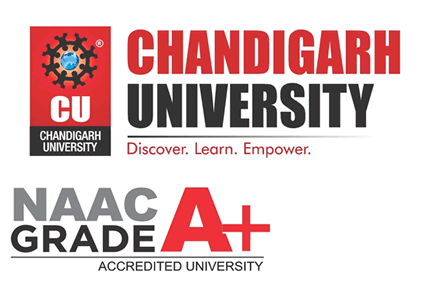
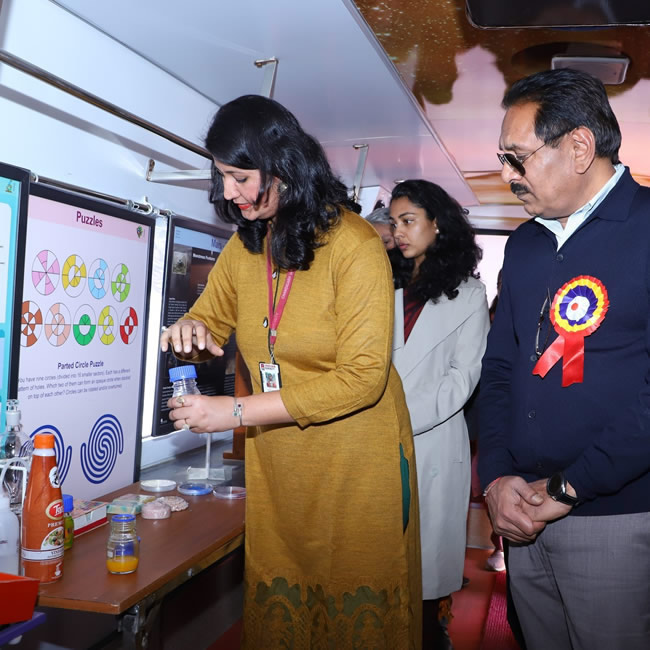
Photo: Adviser to Chandigarh Administrator, Mr. Dharam Pal, took a tour of the newly inaugurated Mobile Science Bus. Chandigarh University Chancellor, Mr. Satnam Singh Sandhu, and Ms. Purva Garg IAS, Education Secretary, Chandigarh Administration, accompanied him.
CHANDIGARH, India, December 7, 2022 — With a mission to motivate students to choose sciences as a career after schooling, Chandigarh University launched a Mobile Science Bus today. It is equipped with state-of-the-art research and practical-lab facilities that can help students perform advanced practices that are part of their course curriculum. The Science bus project is of the Government of India’s Mobile Science Exhibitions (MSE) mission. It is a joint effort of Chandigarh University and the Department of Science and Technology (DST). The inauguration ceremony was presided over by the Adviser to Chandigarh Administrator, Mr. Dharam Pal (IAS), along with Mr. Harsuhinder Pal Singh Brar (PCS), Director of School Education Chandigarh; Mr. Satnam Singh Sandhu, Chancellor of Chandigarh University; Ms. Purva Garg, Education Secretary Chandigarh; and Mr. Rajeev Kumar, Principal, Govt. Model Senior Secondary School Sector-22 Chandigarh.
The science bus, designed with modern equipment and relevant facilities worth one crore, aims at covering all the schools across the union territory of Chandigarh. A team of 20 faculty members will lead the bus. In addition, four research scientists from Chandigarh University will be on the bus. The bus will showcase projects and help students perform more than 150 experiments from up to Class 12 in Physics, Chemistry, and Biology, along with providing information about various devices, tools, and developments in the sector. The bus carries additional kits for students to perform experiments. A multimedia projector screen is also present for conducting experiments in a group.
Mr. Dharam Pal, Adviser to Chandigarh Administrator, said, “This Science Bus will become a milestone in school education and learning as it will reach out to every student where they can perform science practicals to enhance their learning. Some government schools in the periphery of Chandigarh are still establishing laboratory infrastructure. Hence, the Science Bus designed by Chandigarh University will reach their doorstep. The Department of Education, Union Territory of Chandigarh, will also help in this project by sending their teachers for training in new technology to get equipped with the skills needed to teach the students.”
Chancellor Satnam Singh Sandhu said, “The bus aims to cover all schools in Chandigarh within six months. Starting December 7, the bus will visit the model schools in Sectors 20 and 35 of Chandigarh, followed by the government schools in rural areas.”
Source: Chandigarh University
|GlobalGiants.Com|
Edited & Posted by the Editor | 7:53 AM | View the original post

• Public Notice regarding University Grants Commission (Categorization of Universities (Only) for Grant of Graded Autonomy) (First Amendment) Regulation, 2022.
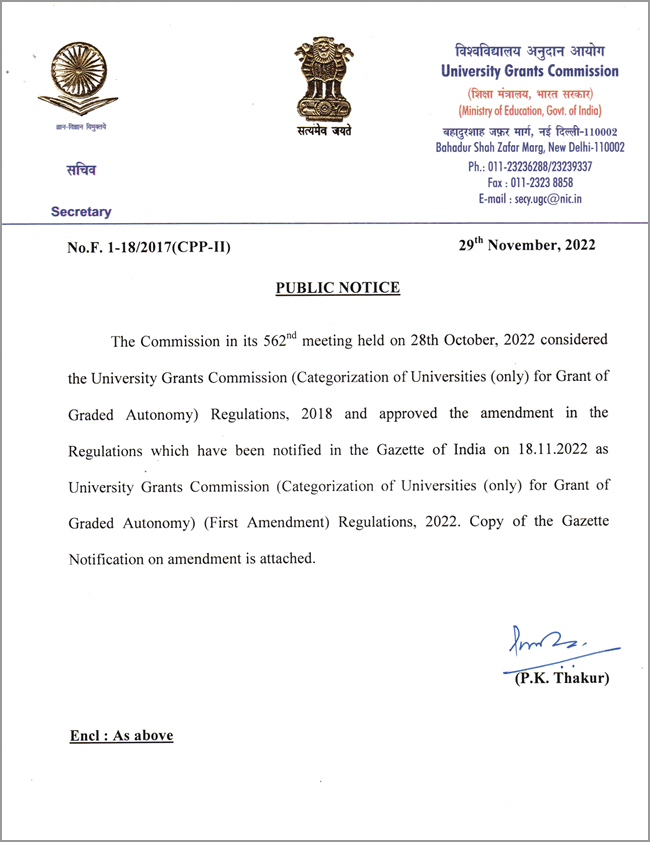
This Public Notice pertains to the amendment in the University Grants Commission (Categorization of Universities (only) for Grant of Graded Autonomy) Regulations, 2018.
The regulations divide all universities into three categories for granting graded autonomy. The relevant provision defining that categorization is as follows:
• Framework for Categorization of Universities for Grant of Graded Autonomy
The Commission shall categorize Universities into the following three categories, i.e., Category-I, Category-II, and Category-III, based on the parameters laid down in sub-clauses (i), (ii), and (iii) and as notified by the Commission through detailed guidelines from time to time.
(i) Category-I University:
University shall be in Category-I if
a. NAAC has accredited it with a score of 3.51 or above; or
b. It has received a corresponding accreditation grade/score from a reputed accreditation agency empanelled by the UGC; or
c. It has been ranked among the top 500 of reputed world rankings, such as Times Higher Education or QS.
(ii) Category-II University:
University shall be in Category II if
a. It has been accredited by NAAC with a score of 3.26 and above, up to 3.50, or
b. It has received a corresponding accreditation grade/score from a reputed accreditation agency empanelled by the UGC.
(iii) Category-III University:
University shall be in Category III if it does not come under Category-I or Category II.
These regulations apply to all universities, i.e., “all universities established or incorporated by or under a Central Act, a Provincial Act, or a State Act and any Institution Deemed to be a University under Section 3 of the UGC Act, 1956”.
The regulations fully explain how much and what autonomy and authorizations each category receives.
Category-1 Universities get exceptional autonomy, while Category-2 Universities receive lesser independence, but Category-3 Universities are not granted that freedom.
The UGC categorizes all universities accordingly.
Are you aware of your University’s Category? What is it?
If it does not come in Category-1 or Category-2, then yours is a “Category-3 University.”
Source: UGC
|GlobalGiants.Com|
Edited & Posted by the Editor | 11:25 AM | View the original post
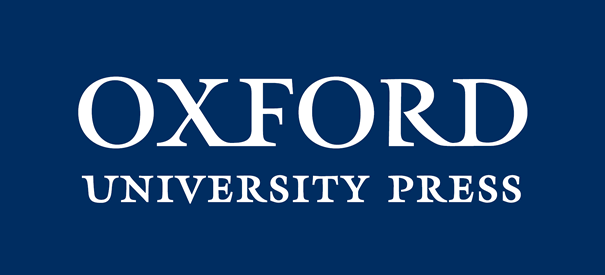
Oxford, December 05, 2022 — More than 300,000 English speakers voted to choose the “Word of the Year.” And the winner is: “Goblin Mode.”
As Oxford University Press (OUP) explained, ‘Goblin mode’ is a slang term often used in the expressions ‘in goblin mode’ or ‘to go goblin mode.’ It is a type of behavior that is unapologetically self-indulgent, lazy, careless, or greedy, typically in a way that rejects social norms or expectations.
“Although first seen on Twitter in 2009, goblin mode went viral on social media in February 2022, quickly making its way into newspapers and magazines after being tweeted in a mocked-up headline. The term then rose in popularity over the months following as Covid lockdown restrictions eased in many countries and people ventured out of their homes more regularly. Seemingly, it captured the prevailing mood of individuals who rejected the idea of returning to ‘normal life, or rebelled against the increasingly unattainable aesthetic standards and unsustainable lifestyles exhibited on social media,” OUP added.
At a special event to announce this year’s approach to selecting the Oxford Word of the Year, Ben Zimmer, American linguist and lexicographer, said: “Goblin Mode does speak to the times and the zeitgeist, and it is certainly a 2022 expression. People are looking at social norms in new ways. It allows people to ditch social norms and embrace new ones.”
Casper Grathwohl, President of Oxford Languages, said: “We were hoping the public would enjoy being brought into the process, but this level of engagement with the campaign caught us by surprise. The strength of the response highlights how important our vocabulary is to understanding who we are and processing what’s happening to the world around us. Given the year we’ve just experienced, ‘Goblin mode’ resonates with all of us who feel a little overwhelmed. It’s a relief to acknowledge that we’re not always the idealized, curated selves we’re encouraged to present on our Instagram and TikTok feeds. It has been demonstrated by the dramatic rise of platforms like BeReal, where users share images of their unedited selves, often capturing self-indulgent moments in goblin mode. People are embracing their inner goblin, and voters choosing ‘goblin mode’ as the Word of the Year tells us the concept is likely here to stay.”
Oxford University Press (OUP) is one of the world’s largest university presses with a broad global presence. It prints in many countries, in more than 40 languages, and various formats - print and digital. As a result, OUP products cover a vast academic and educational spectrum. For example, the Oxford English Dictionary, published by Oxford University Press, is the principal historical dictionary of the English language.
Oxford University Press (OUP) is a department of the prestigious “University of Oxford.”
Source: Oxford University Press
|GlobalGiants.Com|
Edited & Posted by the Editor | 5:43 AM | View the original post
New Delhi, December 2, 2022 — National Testing Agency (NTA) India has issued a Public Notice concerning the Advance Intimation of Examination City allotted to the Candidates of the Jawaharlal Nehru University Entrance Examination (JNEEE-2022).

Source: National Testing Agency (NTA)
|GlobalGiants.Com|
Edited & Posted by the Editor | 3:59 AM | View the original post
• G-20 University Connect: Engaging Young Minds Program
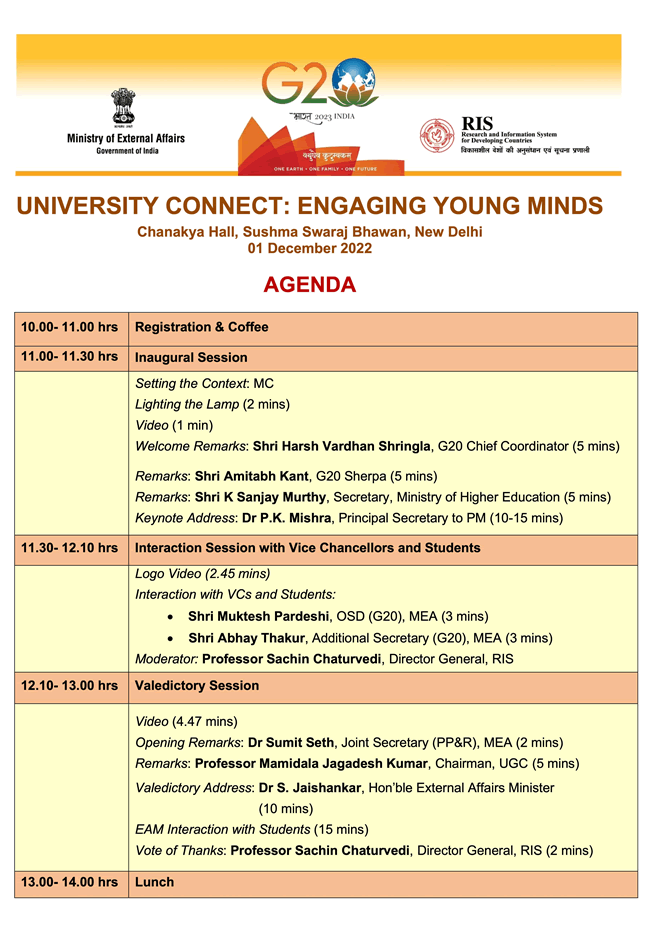
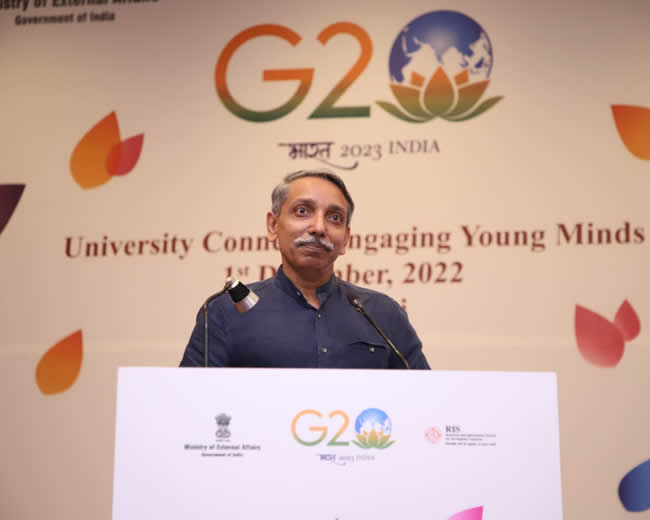
Photo: UGC Chairman at the G-20 University Connect: Engaging Young Minds Programme, New Delhi. December 1, 2022. Image provided by G20 India.
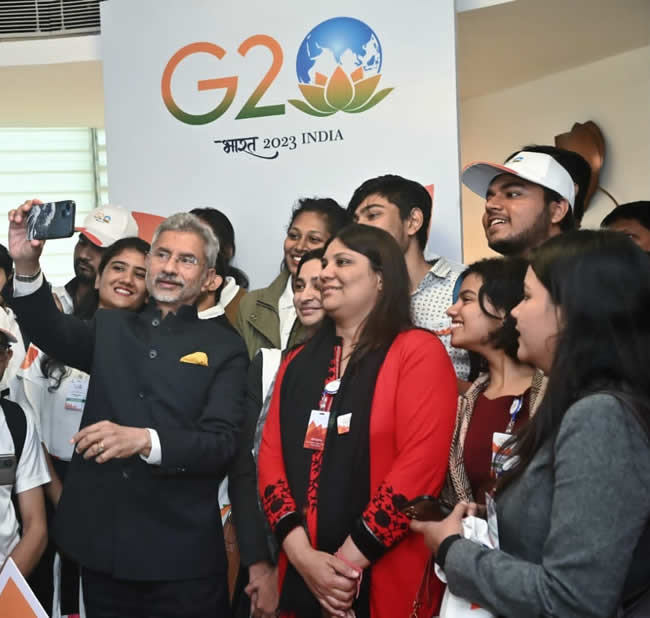
Photo: External Affairs Minister Dr. S. Jaishankar with students. G-20 University Connect: Engaging Young Minds Programme, New Delhi. December 1, 2022. Image provided by G20 India.
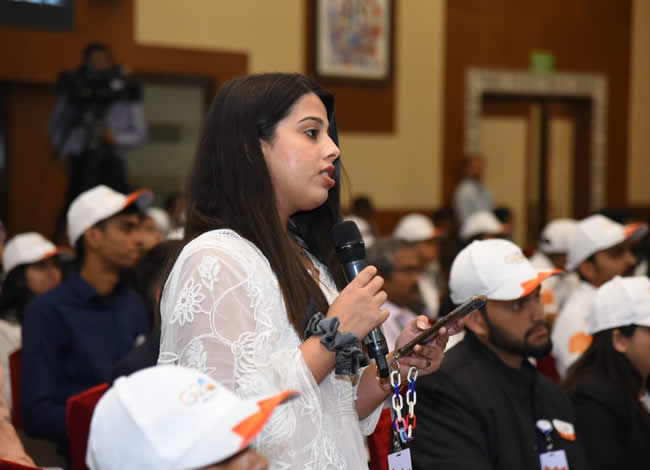
Photo: G-20 University Connect: Engaging Young Minds Programme, New Delhi. December 1, 2022. Image provided by G20 India.
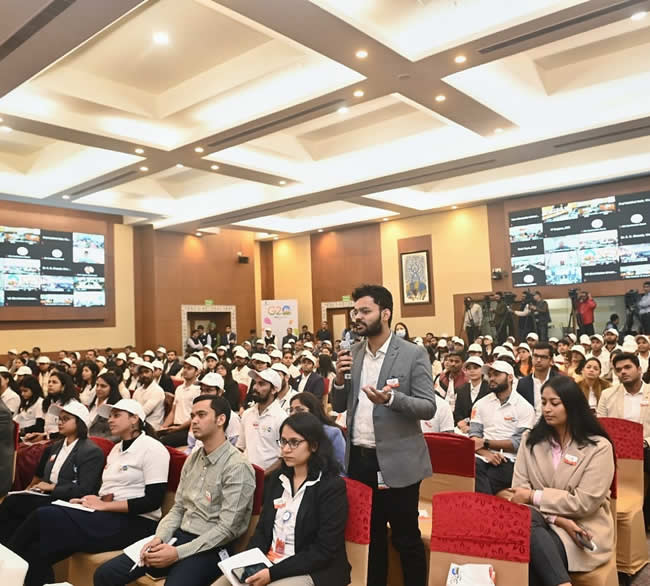
Photo: G-20 University Connect: Engaging Young Minds Programme, New Delhi. December 1, 2022. Image provided by G20 India.
New Delhi, December 1, 2022 — UGC Chairman M Jagadesh Kumar said that India had begun its G20 presidency journey with a program called ‘University Connect’ where students of universities across the country will engage each other.
“During India’s G20 presidency, students of several universities will create awareness about the importance of the G20 presidency and how India can be a role model for the rest of the world through its G20 Presidency of healing, harmony, and hope,” Kumar said.
“It is wonderful that India began today its G20 presidency journey with “University Connect” by engaging with students of universities across the country, he said.
“Our students will also be ambassadors of our country in showcasing to the visiting G20 members the rapid, inclusive developmental progress that India is going through,” the University Grants Commission (UGC) head added.
India’s G20 Sherpa, Amitabh Kant, Secretary, Ministry of Higher Education, Government of India, Sanjay Murthy; Director General of the RIS, Prof. Sachin Chaturvedi; Vice-Chancellors of Delhi University, Jawahar Lal Nehru University, Jamia Milia Islamia, Amity University, Gautama Buddha University, and Sharda University were among other prominent attendees.
India formally assumed the G20 presidency on December 1, 2022.
The G20, or Group of 20, is an intergovernmental forum of the world’s major developed and developing economies. The Group comprises Argentina, Australia, Brazil, Canada, China, France, Germany, India, Indonesia, Italy, Japan, the Republic of Korea, Mexico, Russia, Saudi Arabia, South Africa, Turkey, the UK, the US, and the European Union.
University Connect, on Day 1 of G20 India, engaged students & faculty from universities across India.
External Affairs Minister Dr. S. Jaishankar delivered the valedictory address.
Dr. P K Mishra, Principal Secretary to the Prime Minister, delivered the keynote address as follows:
“Shri Amitabh Kant, G-20 Sherpa; Shri Harsh Vardhan Shringla, G-20 Chief Co-ordinator; Shri Sanjay Murthy, Secretary, Higher Education; Professor Jagadeesh Kumar, Chairman UGC; Vice-Chancellors, faculty members and dear students,
“December 1, 2022, is a watershed moment for India and its 1.41 billion citizens as it gets a glorious opportunity to host the largest multilateral event on its soil. India assumes the G20 Presidency Today. It is a great honor and responsibility for us because this occasion is coming to us during the ‘Amritkaal’ of our independence.
“Today, India’s G20 officially begins with the ‘University Connect Program’ wherein we would engage the ‘Youth’ of India, those who would lead India from the front in years to come. As part of the G20 process, people from diverse strata and occupations will also participate in different meeting formats.
“As I said earlier, India’s G20 is not merely a diplomatic meeting. It is an excellent opportunity for India and every Indian. Our Prime Minister has said, “Today, there is an unprecedented curiosity in the world to know and understand India.”
“He continued, “In such an atmosphere, it is the responsibility of the citizens to go beyond these expectations and acquaint the world with India’s capabilities, philosophy, social and intellectual strength.”
“Our responsibility is to showcase India appropriately, befitting her stature and glory. India has as much uniqueness as it has diversity. So we are responsible for bringing out India’s best traditions before the world.”
Source: G20 India
|GlobalGiants.Com|
Edited & Posted by the Editor | 12:37 PM | View the original post
— Experts at the University of Birmingham will work with partners in India across railways, hydrogen fuels, data science, artificial intelligence, and education.


Photo: The University of Birmingham and K-Ride signing an MoU. Key people: Prof Adam Tickell, Vice-Chancellor and Principal, University of Birmingham; Mr. Gaurav Gupta, IAS, Managing Director, K-Ride; being witnessed by Mr. James Godber, Deputy Head, British Deputy High Commission Bengaluru.
NEW DELHI, Nov. 28, 2022 — The University of Birmingham Vice-Chancellor, Professor Adam Tickell, signed a range of Memoranda of Understanding (MoU) with the University’s partners at special signing ceremonies in Bengaluru and Delhi.
The agreements are vital to the University’s ongoing strategic vision to build meaningful education and research partnerships in India.
Professor Adam Tickell signed MoUs with the following:
“The University of Birmingham’s collaborative research output with India partners has almost doubled over the last five years. We currently have over 40 joint research projects of outstanding quality,” commented Professor Adam Tickell.
“We are a global civic university with a long, illustrious relationship with India. Signing these agreements with partners in areas such as railways, sports science, education, and community business gives us a great opportunity to further contribute to Indian society,” he added.
The University and TESCO Business Services are joining forces to create postgraduate study programs in data science and artificial intelligence. The partnership will see University experts designing and delivering educational programs for TESCO’s staff - from training in specific professional areas to formal postgraduate qualifications.
TESCO will also explore opportunities for suitably qualified Birmingham students to join placements at the company’s data-science laboratories in India and offer guest lectures to Birmingham staff and students.
University experts from the Birmingham Centre for Railways Research and Excellence (BCRRE) will work with K-RIDE - an urban rail transport joint venture of Govt. of Karnataka and the Ministry of Railways - to launch studies into two major areas: Power consumption and energy analysis and railway network operational simulation, resilience testing and optimization.
Working with Aarvee Associates, University experts will help develop railway condition monitoring and sensing equipment within tunnels and bridges. Partnering with Efftronics will see research and knowledge exchange projects developed in signaling schemes, training programs, and CPD courses.
Academics from Birmingham will work with experts at Hindustan Petroleum Company Ltd. - supporting the creation of a research Centre of Excellence and helping to develop innovative solutions to hydrogen production and storage, fuel cells, domestic hydrogen transportation, and re-fuelling systems.
Professor Tickell signed agreements with Manipal University to create a dual Master’s Programme in Artificial Intelligence & Data Science and explore new opportunities for student exchange between the two universities.
Birmingham academics will also work with partners at Vellore Institute of Technology and Bennett University to develop new opportunities in law. They will also partner with the Indo-British Scholars’ Association to develop unique education opportunities that benefit both Indian and British students.
Alex Ellis, British High Commissioner to India, said: “I am delighted that the University of Birmingham is strengthening its presence in India across railways, sports science, education, and community business. British and Indian institutions can address shared global challenges through research, innovation, and knowledge. The University has strong India partnerships. These new agreements will further benefit both our countries.”
The University of Birmingham has several significant partnerships in India, underpinned by its India Institute, which aims to increase the visibility, impact, and coherence of Birmingham’s engagement in the country.
The University of Birmingham ranks amongst the world’s top 100 institutions. Its work brings people from across the globe to Birmingham, including researchers, teachers, and more than 6,500 international students from over 150 countries.
Source: University of Birmingham
|GlobalGiants.Com|
Edited & Posted by the Editor | 6:14 AM | View the original post
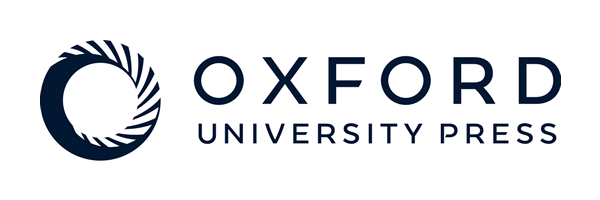
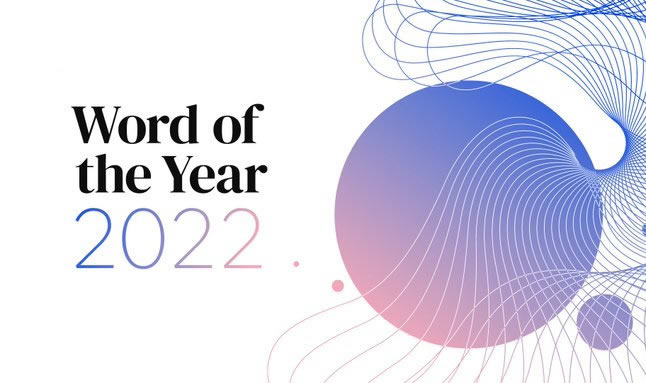
Oxford, November 22, 2022 — “The Oxford Word of the Year has reflected the year’s mood, ethos, and social landscape for almost two decades. In 2022, the world gradually reopened. For most countries, this has meant reuniting with friends and family, gathering for events, and returning to offices and workplaces,” Oxford University Press (OUP) stated.
“2022 characterizes reunion, reconnection, activism, and social and political change. Therefore, in recognition of that, we are opening up this year’s Oxford Word of the Year for everyone, everywhere, to have their say on what word best reflects their experience of 2022,” OUP added.
Oxford unveiled this news in an exclusive virtual press event chaired by English lexicographer and broadcaster Susie Dent. The panelists included:
Ben Zimmer - American linguist, lexicographer, and language columnist
Katherine Martin - Product Director, Oxford English Dictionary, Oxford University Press
Fiona McPherson - Senior Editor, Oxford English Dictionary, Oxford University Press
Jonathan Dent - Senior Editor, Oxford English Dictionary, Oxford University Press
The panel discussed why, in a year underpinned by change, OUP had adopted a different approach to choosing its Word of the Year for 2022.
Oxford University Press also revealed the three candidates chosen by their language experts after carrying out their annual duties of researching and reviewing this year’s lexicon. The finalist words put to a public vote include:
• Metaverse n.
A (hypothetical) virtual reality environment in which users interact with one another’s avatars and their surroundings in an immersive way, sometimes posited as a potential extension of or replacement for the internet, World Wide Web, social media, etc.
• IStandWith
It is a hashtag used on social media to express solidarity with a specified cause, group, person, etc.
• Goblin Mode n.
Slang. A type of behavior that is unapologetically self-indulgent, lazy, careless, or greedy, typically in a way that rejects social norms or expectations, frequently in goblin mode or goes goblin mode.
All three words experienced substantial spikes in usage and captured significant concerns, concepts, and states faced this year.
During the Oxford Word of the Year event, Susie Dent praised the fresh approach to this year’s process:
“I’m so excited by this because this is true democracy. English is a democracy; no guiding authority tells us what we can say, what we can’t say, what is correct and what is incorrect. It feels like Word of the Year will reflect that authentic approach. I love it.”
Jonathan Dent also outlined the “evidence-based” process of researching possible candidates for the Oxford Word of the Year.
“Wherever possible, we use corpuses,” Jonathan highlighted.
“These are large bodies of tagged electronic text - the words are all grammatically tagged, and we can analyze the sentences. So it allows us to explore on quite a large scale - linguistic patterns and trends, which words co-occur quite frequently, development of existing words or words moving into different realms.
“For the monitoring and lexicography of current English, we have access to a 19-billion-word corpus, which is updated monthly with new content from around the world. It is our main resource when thinking about Word of the Year; it allows us to see fluctuations and increases in usage in the past twelve months.”
Additionally, Jonathan indicated the reasoning behind metaverse’s inclusion as an Oxford Word of the Year candidate.
“Up until this year, it’s been a relatively low-frequency word in our corpus, but we’ve seen it quadruple in the past year.
“I think as well as reflecting the extent to which social media and the internet increasingly mediate our experience of the world and communication, it also perhaps represents ongoing questions about ownership and regulation on new technologies - especially those by which we communicate.”
For the second candidate, #IStandWith, Fiona McPherson mentioned its usage online to express support.
“By using #IStandWith, people can at least show solidarity for something that may be happening hundreds or thousands of miles away.
“I think this says something quite characteristic about 2022 in that it shows how we’ve come together in solidarity after a difficult number of years. There are still difficulties and horrors in the world, so it’s a way of us coming together and showing solidarity and perhaps expressing how we feel about something.”
Ben Zimmer also gave his thoughts on Goblin Mode as the third Oxford Word of the Year candidate:
“I think Goblin Mode speaks to the times and the zeitgeist, and it is undoubtedly a 2022 expression!
“People are looking at social norms in new ways. It allows people to ditch social norms and embrace new ones.”
“Over the next two weeks, we’ll share insights into the grammatical and linguistic behavior of the words across our social media channels, asking the public to cast their vote and answer the question: Are you #Teammetaverse, #TeamGoblinMode, or #TeamIStandWith?” Oxford University said.
Voting is now open across Oxford University Press’s social media accounts (Twitter, Instagram, and LinkedIn) and website.
Evidenced by the experts at Oxford and chosen by English speakers everywhere, Oxford University Press will monitor the conversation closely and reveal the winner of the Oxford Word of the Year 2022 on December 5, 2022.
Oxford University Press (OUP) is one of the world’s largest university presses with a broad global presence. It prints in many countries, in more than 40 languages, and in various formats - print and digital. As a result, OUP products cover a vast academic and educational spectrum. For example, the Oxford English Dictionary, published by Oxford University Press, is the principal historical dictionary of the English language.
Oxford University Press (OUP) is a department of the prestigious “University of Oxford.”
Source: Oxford University Press
|GlobalGiants.Com|
Edited & Posted by the Editor | 12:13 PM | View the original post
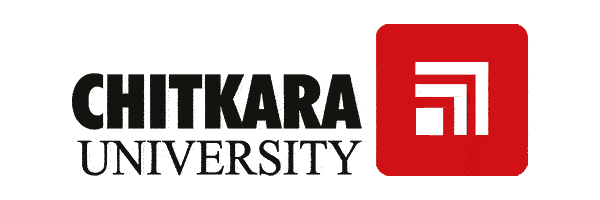
Chandigarh, India, November 22, 2022 — Chitkara University has signed a Memorandum of Association (MoA) with the Data Security Council of India (DSCI)’s National Centre of Excellence for Cyber Security Technology Development (NCoE) for collaboration on conducting joint programs on cyber security and privacy.
Dr. Madhu Chitkara, Pro-Chancellor, of Chitkara University, and Mr. Vinayak Godse, CEO of DSCI, signed the MoA on the campus premises. Present on occasion were senior officials and industry stalwarts from the organizations like SBI Cards, ONGC, POSOCO, NHPC, DSCI, SAIL, and LTI Mindtree, to name a few.
Chitkara University and DSCI will work jointly as an official industry partner & focus on various areas for cyber security and privacy with core objectives like
Strengthening further research and innovation in the field of cybersecurity
Contributing to the realization of national goals and strategies for cybersecurity
Promoting technology thinking in cyber security and developing security technology community
Developing niche skills and capability for cyber security technology development and entrepreneurship
Chitkara University practices research, innovation, and entrepreneurship and operates an Incubation Centre for Research & Development, which focuses on training, developing, and strengthening the practical application of cyber security. Dr. Madhu Chitkara observed, “This association will help students and aspiring scholars keen on pursuing research in Cyber Security, Digital Forensics, and Blockchain Technology.”
The Data Security Council of India (DSCI) is a not-for-profit industry body on data protection in India, set up by NASSCOM, and committed to making cyberspace safe and secure.
The National Centre of Excellence for Cyber Security Technology Development is a joint initiative conceptualized by the Ministry of Electronics & IT (MEITY) and DSCI for setting up connected, concerted & coordinated efforts to catalyze and accelerate cyber security technology development and entrepreneurship in the country.
Chitkara University, with more than 25,000 students and 1,700 staff from over 100 different countries, has the mission of making every student “industry ready.”
Chitkara University has been awarded the rating of A+ by the prestigious National Assessment and Accreditation Council (NAAC), which places it among the 5% of higher education institutions (HEIs) in India to be granted such a coveted grade.
Source: Chitkara University
|GlobalGiants.Com|
Edited & Posted by the Editor | 1:48 PM | View the original post
New Delhi, November 22, 2022 — National Testing Agency, Department of Higher Education, Ministry of Education, Government of India, has announced the Score Card for the Entrance Test of Delhi University PG (Post Graduate) and Ph.D. Courses (DUET 2022). NTA conducted the test in 28 cities across India.

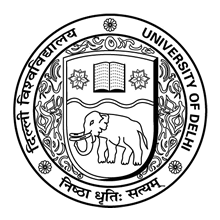

Source: National Testing Agency (NTA)
|GlobalGiants.Com|
Edited & Posted by the Editor | 8:34 AM | View the original post
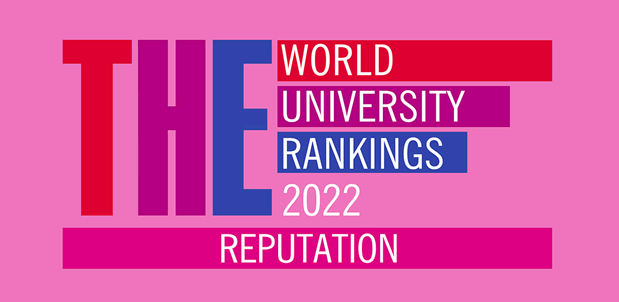
LONDON: Times Higher Education has announced its World Reputation Rankings 2022. These rankings differ from the Academic Rankings and come from the world’s largest invitation-only opinion survey of senior published academics. The survey asks recognized scholars worldwide to name no more than 15 universities that they believe are the best for research and teaching in their field.
Harvard University tops the ranking for the 12th consecutive year, and the US remains the most represented country, with 56 institutions (one fewer than last year).
The top 10 is dominated by the US and UK, with the only exceptions being China’s Tsinghua University, rising one place to ninth, and Japan’s University of Tokyo, rising three spots to 10th.
China and Japan continue their success elsewhere in the rankings - China built on the progress it made in previous years, and Japan bounced back from a poorer performance last year.
Nine Chinese universities have improved their reputation, while four declined in the rankings and four retained their position. Tsinghua University rose one place to ninth; Peking University climbed two to 13th, and Shanghai Jiao Tong University leaped up 22 spots to 28th. Fudan University, Sichuan University, University of Chinese Academy of Sciences (UCAS), Harbin Institute of Technology, Sun Yat-sen University, and Southeast University also improved.
Like last year, the UK still has the second highest number of representatives in the ranking, but at 24, one fewer than last year. Its highest entry is the University of Oxford, in fourth place.
The ranking includes universities in 32 countries, Times Higher Education said.
India has three institutions in the rankings, Indian Institute of Science, Bangalore (101-125), followed by IIT Bombay (151-175) and IIT Delhi (176-200).
• WORLD UNIVERSITY REPUTATION RANKINGS 2022
RANK — UNIVERSITY — COUNTRY
Source: Times Higher Education
|GlobalGiants.Com|
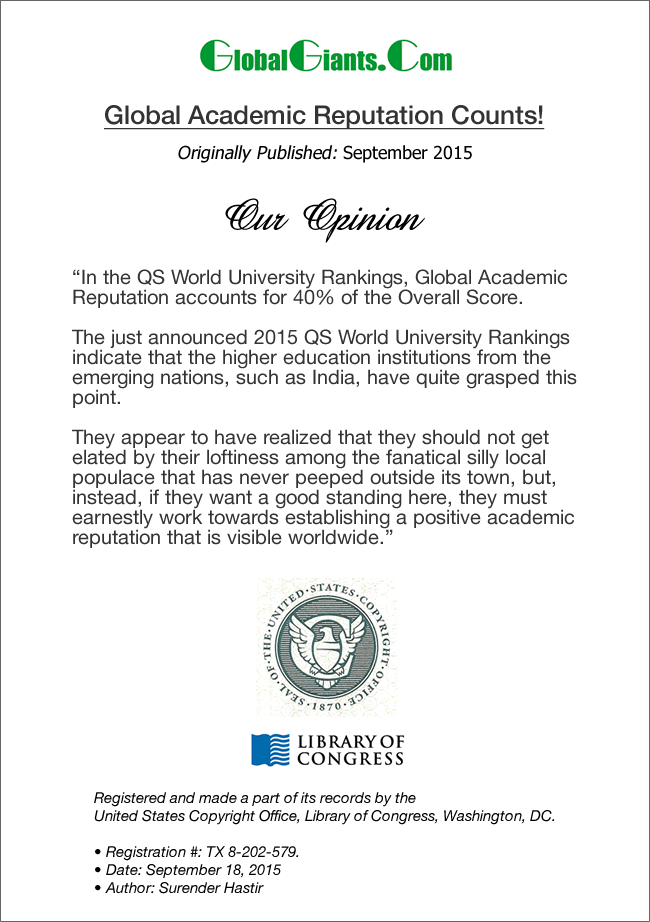
Edited & Posted by the Editor | 11:42 AM | View the original post
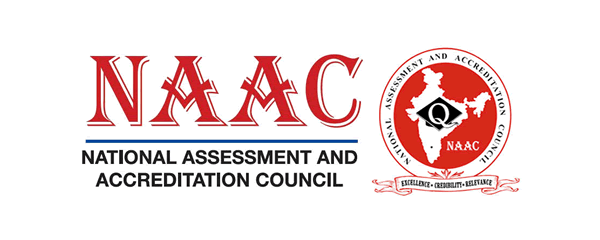
The National Assessment and Accreditation Council (NAAC), India, has extended the timeline for submission of pending AQARs by NAAC Accredited Institutions.
AQAR (Annual Quality Assurance Report) is a yearly report that all NAAC Accredited Institutions must submit to NAAC every year.
NAAC has notified all concerned Higher Education institutions of this decision.
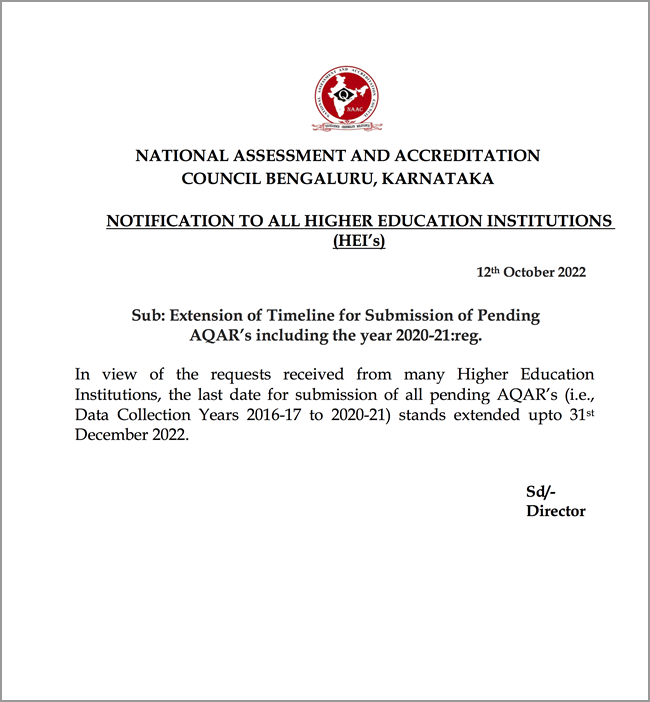
— NAAC accreditation provides instant credibility to a Higher Education Institution and authenticates the quality of its —
Curriculum
Teaching-learning & Evaluation
Research, Innovations & Extension
Infrastructure & Learning Resources
Student Support & Progression
Governance, Leadership & Management
Institutional Values & Best Practices
— A seven-member National Assessment and Accreditation Council (NAAC) team has just concluded its visit to the Himachal Pradesh University (HPU), Shimla. It also met with the Himachal Pradesh Governor.
— The NAAC group evaluated the university’s performance in curriculum, teaching, learning and evaluation, research, innovation and extension, infrastructure, student support and progression, governance, leadership and management, and best practices.
— The team has now announced that Himachal Pradesh University (HPU) has retained the “A” grade. However, its points have declined from 3.21 to 3.07.
— The NAAC group praised HPU for adding “Professional Ethics” and “Human, Social, and Environment Values” to the University’s Syllabus. However, the NAAC evaluators have recommended that the university should:
Work out and introduce a policy of associating teachers in multiple interdisciplinary units.
Strengthen Women’s Study Centres.
Increase the number of Hostels.
Fully automate the Central Library.
Make the Placement Cell more active.
Implement the Credit System in the true sense.
Make Reading Rooms available in Girls’ Hostels.
Design the Central Library and Syllabi for Ph.D. coursework per the UGC Guidelines.
Improve the University Transport System and Facilities.
Attend to the Lack of Agreements with Foreign Universities.
Attend to the Lack of Student Exchange and Teacher Exchange Programs with Foreign Institutions.
Expand student facilities.
- UPDATE -
NOVEMBER 11, 2022
— NAAC has just issued a Notification to all Higher Education Institutions announcing the Closure of the Extension of the Validity Period of Accreditation.
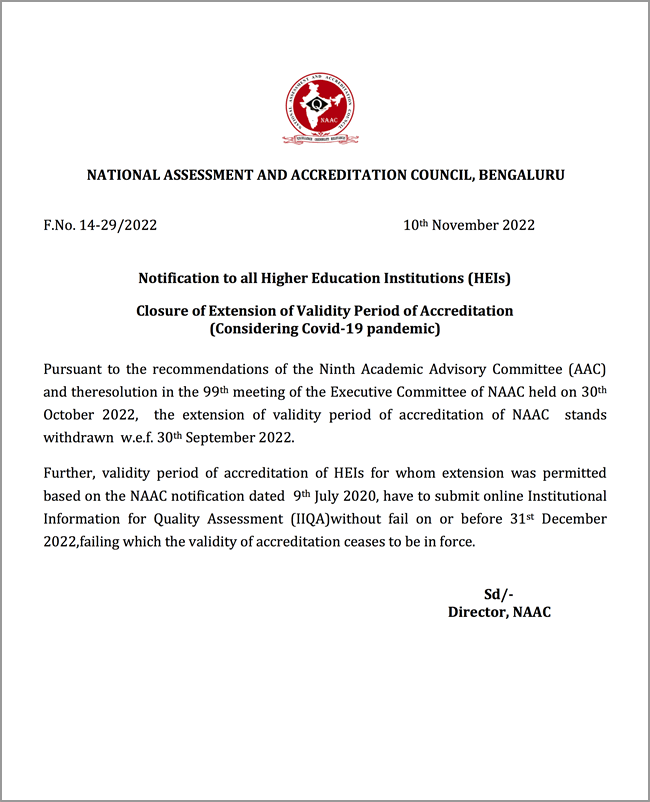
For example, the University of Delhi, a central public university, is “NAAC Accredited A+,” and the University of Lucknow, a state public university, is “NAAC Accredited A++.”
Chandigarh University, a private university, is “NAAC Accredited A+,” and Chitkara University, another private university, is “NAAC Accredited A+.”
Further, through a gazette notification, the University Grants Commission (UGC) has made it mandatory for Higher Educational Institutions (HEIs) to undergo accreditation.
And, according to the Ministry of Education, Government of India, any Higher Educational Institution’s “Accreditation Status” reflects its quality and is a reliable source of information for students, employers, and society.
— Is yours a “NAAC Accredited University”?
— If not, consider getting it accredited. It could be crucial. Remember, one can instantly check the NAAC Accreditation Status of any institution, including yours.
Source: NAAC
|GlobalGiants.Com|
Edited & Posted by the Editor | 10:13 AM | View the original post
 |
 |
